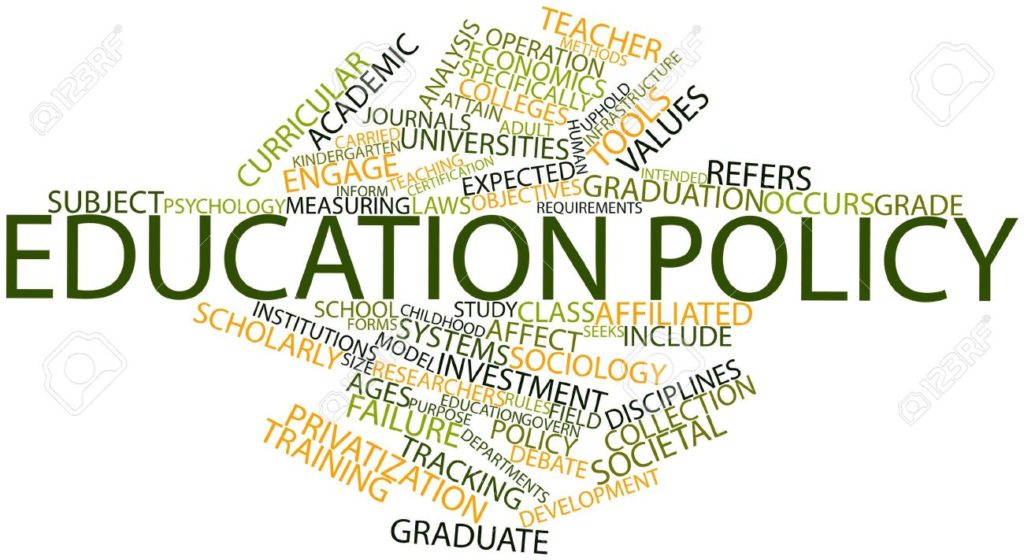By JOSI-FAY SALVADORI
What are the implications for education of five more years of ANC government?
Gadra Education manager, Dr Ashley Westaway, says the education system we have now, is “the ANC’s system” – and, to see what it stands for, we have to look at what exists currently.
“Crudely speaking, we’ve got 80% dysfunctional public schools, 20% functional public schools. That 20% can be thought of as 10% + 10%, with the first half being former Model C schools, and the other half being the one-in-nine no-fee paying schools that are functional. Eight in nine no-fee paying schools are dysfunctional – all of them controlled essentially by the South African Democratic Teachers Union (Sadtu).”
He says that because of the position of Sadtu as a key voting block for the ANC “the only way to have systemic change or structural change, is for there to be a change in political configuration”.
“As long Sadtu is such a key constituency for the ANC, the ANC cannot discipline Sadtu,” Westaway argues. If fundamental change is to occur in education we need a nothing less than a “political revolution”.
That revolution did not happen on election day, with the ANC on course to return to power for another five years.
In the manifestos of the major political parties running in the 2019 elections, each party presented a different policy as to how they would remodel the Basic Education System. A “cheat-sheet” compiled by the Financial Mail in their 25 April 2019 edition, outlines the main policy points:
| Political party | Education policy breakdown |
| African National Congress | Prepare to make two years of early childhood development compulsory. Appoint qualified teachers, develop their skills and enforce accountability. Replace unsafe and inadequate school buildings and sanitation facilities. Extend free higher education to the poor and ‘missing middle’. Implement mass apprenticeship programme across all economic sectors. |
| Democratic Alliance | Free comprehensive higher education for the poor. Partial bursaries for low to middle-income learners. Establish a national schools inspectorate as a chapter 9 institution. Principles may not strike and demote, or fire poor performing principals. Teacher-training colleges in every province. Convert struggling public schools using private providers to help improve management. Greater autonomy to schools and school governing bodies. |
| Economic Freedom Fighters | Free quality ‘decolonised’ education until a first degree for all, funded by a tax (2% of revenue) on companies with a turnover of R50m and above. Tertiary education will be compulsory for all graduates guaranteed government employment. Cancel all student debt. R1m grant to all black students who enroll for their doctoral studies. Free universal early childhood development. No private education and abolish independent examinations board. Universal computer literacy by 2024. A free computer tablet for each learner. |
The ANC’s education policy included two years of compulsory ECD (Early Childhood Development) and alterations to the national curriculum in order to prepare children for “the next industrial revolution”. But, is it essentially a reiteration of what the country has had over the last 25 years?
South Africa’s Basic Education System is in a critical condition with too many unskilled and under-performing teachers, a lack of accountability and failing infrastructure. The recent School Monitoring Survey revealed that the number of teachers who are absent from school on a daily basis increased from 8% in 2011 to 10% in 2017. On infrastructure, the survey showed that only 59% of schools comply with nationally-determined minimum physical infrastructure standards.
The ANC has had 25 years to implement its policy of implementing minimum infrastructure standards and of “appointing qualified teachers, developing their skills and enforcing accountability”. Can its new government enforce accountability on these kinds of deep-seated problems when Sadtu is one of its key voting constituencies, as Westaway asks?
Meanwhile, the DA’s manifesto advocated the re-establishment of teacher-training colleges, free higher education for the poor, and introduce the idea of privatisation into the education model. Through constructive partnerships with private initiatives, the party wanted to focus on promoting accountability through suitable assessments, improve school management and provide learners with an education that will allow them to compete at a global level.
The EFF’s education policy also included compulsory ECD programmes with the promise of full-time employment to all ECD practitioners. They hoped to provide quality, ‘decolonised’ education while introducing topics pertaining to indigenous knowledge and using indigenous teaching methods in the process. The party also wanted all matric learners to write the same exams by abolishing the IEB and to introduce cohesive adult education programmes across the country.
https://www.grocotts.co.za/news/saelections-2019-in-makana/



